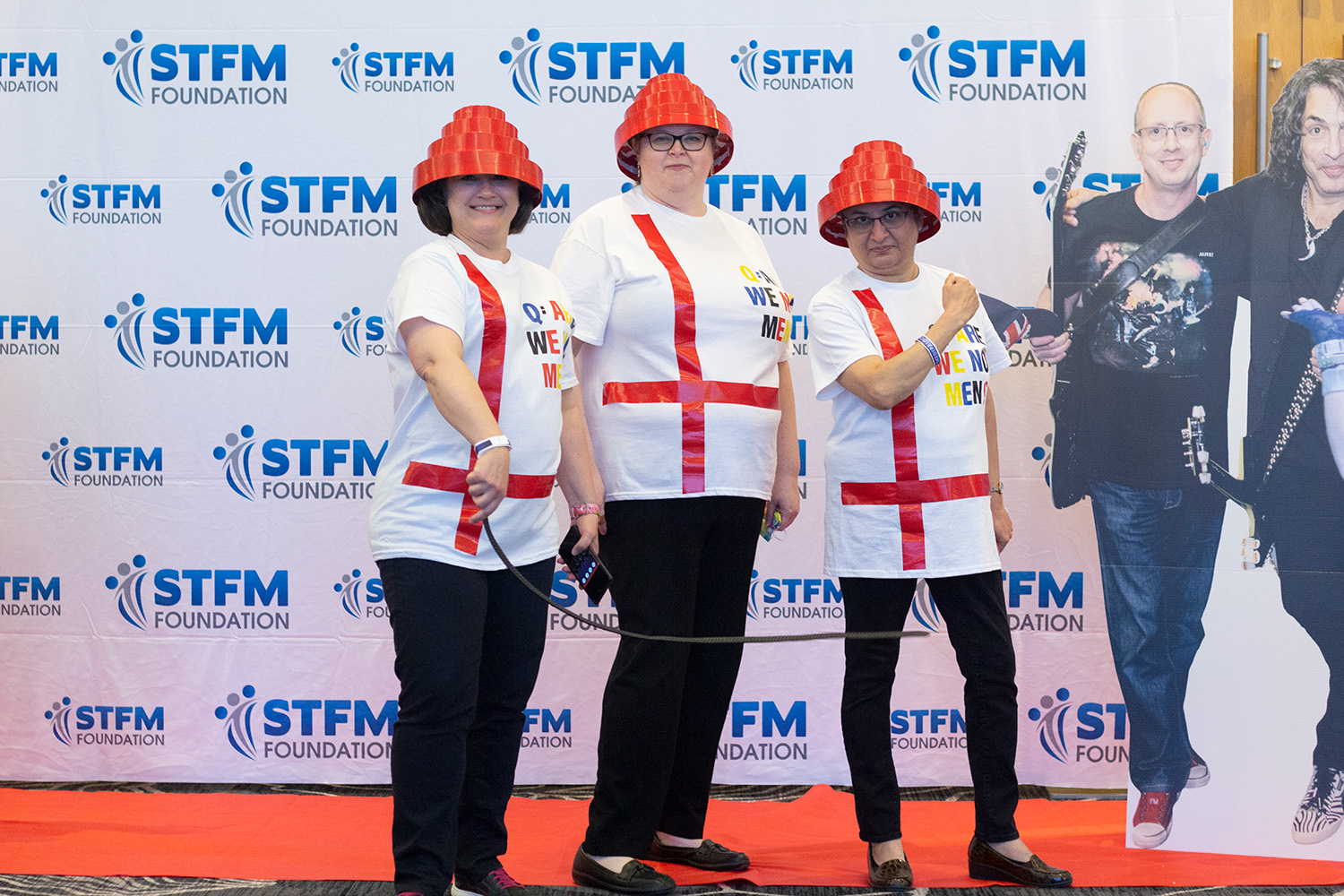50 Years of Investing in the Future of Academic Family Medicine
On June 23, 2025, the STFM Foundation turns 50 years old as the charitable arm of the Society of Teachers of Family Medicine. Family medicine pioneer and author G. Gayle Stephens, MD, was the founding president of the STFM Foundation in 1975.
The Foundation will celebrate this landmark anniversary throughout the remainder of the calendar year.
Read more about the history of the STFM Foundation below, and please consider donating to our special fund to commemorate the 50th anniversary. Click the link above, the button below, or scan the QR code.
DONATE FOR THE 50TH ANNIVERSARY
History of the STFM Foundation
During the past half century, the Foundation has awarded approximately $1.27 million to support STFM programs – including scholarships, fellowships, and awards to sustain the future of family medicine education. The training these funds provide have helped fill the academic family medicine pipeline with future leaders for a half century.
The Leland Blanchard Memorial Lecture was the first STFM Foundation program, started in 1979 in memory of Leland Blanchard, MD, who was a major contributor to the development of family medicine and a charter member of STFM. Each year during the STFM Annual Spring Conference, one of the plenary sessions is honored with the title of The Leland Blanchard Memorial Lecture.
The STFM Foundation’s priority began to take shape over the initial years: develop leaders for family medicine education. The organization’s mission “to sponsor and facilitate programs that develop academic family medicine leaders” was crafted during the first strategic planning session in 1999.
Impact of STFM Foundation
During the past 50 years the foundation has given out approximately $1.27 million to support STFM programs and provide members with scholarships and awards. The training these funds provide help fill the academic family medicine pipeline with future leaders.
Starting in 1988, STFM has offered the New Faculty Scholars Program, which provides new faculty with one year of coaching, learning, and networking opportunities to develop leadership and scholarship skills. The STFM Foundation offers scholars $1000 to cover expenses to attend and present research at the STFM Annual Spring Conference. This program, which was originally called the New Faculty Orientation Award, has supported 257 new faculty in their journeys to become academic family medicine leaders.
In 1990, the STFM Foundation established the F. Marion Bishop Leadership Award. Honoring Dr F. Marian Bishop, this award recognizes senior leaders who have significantly enhanced the credibility of family medicine by a sustained, long-term commitment to family medicine in academic settings. There have been 35 award recipients since the creation of this honor.
In 2008, the STFM Foundation collaborated with STFM to initiate the Project Fund to promote and support collaborative research and educational projects of STFM groups. This fund encourages STFM Collaboratives and Special Project Teams to plan, develop, implement, evaluate, and disseminate findings from educationally-related scholarly projects. Since 2008, the STFM Foundation has helped award more than $365,000 to 29 group or special project teams.
In 2009, the STFM Foundation began awarding scholarships to medical students to help them attend the annual STFM Conference on Medical Student Education, where they present their research and attend educational sessions. Since 2009, 264 exemplary students have received the STFM Foundation Student Scholarship.
Since 2015, the STFM Foundation has awarded family medicine residents with the Faculty for Tomorrow Resident Scholarship, which covers registration fees for residents to attend the full-day Faculty for Tomorrow Workshop and the STFM Annual Spring Conference. This program is supported in part by the generosity of Mary Nolan Hall, MD. A total of 155 family medicine residents have received this scholarship.
In 2020, the STFM Foundation established a Legacy Giving Endowment Fund to allow supporters of academic family medicine to establish their legacy and continue their contributions to the field after their career and even their lifetime. This fund created a Legacy Society to honor and celebrate individuals who have put STFM in their wills and other estate-planning mechanisms.
Other programs supported by the STFM Foundation over the past 50 years – largely thanks to the generosity of donors and STFM members – include:
- STFM National Clerkship Curriculum
- Faculty for Tomorrow Residents as Educators Curriculum
- Publication of the Results of the TransforMED Demonstration Project
- Leading Change Course
- Bishop Fellowship Program
- International Scholarship Program
- Program Enhancement Award
- The Underrepresented in Medicine Initiative



